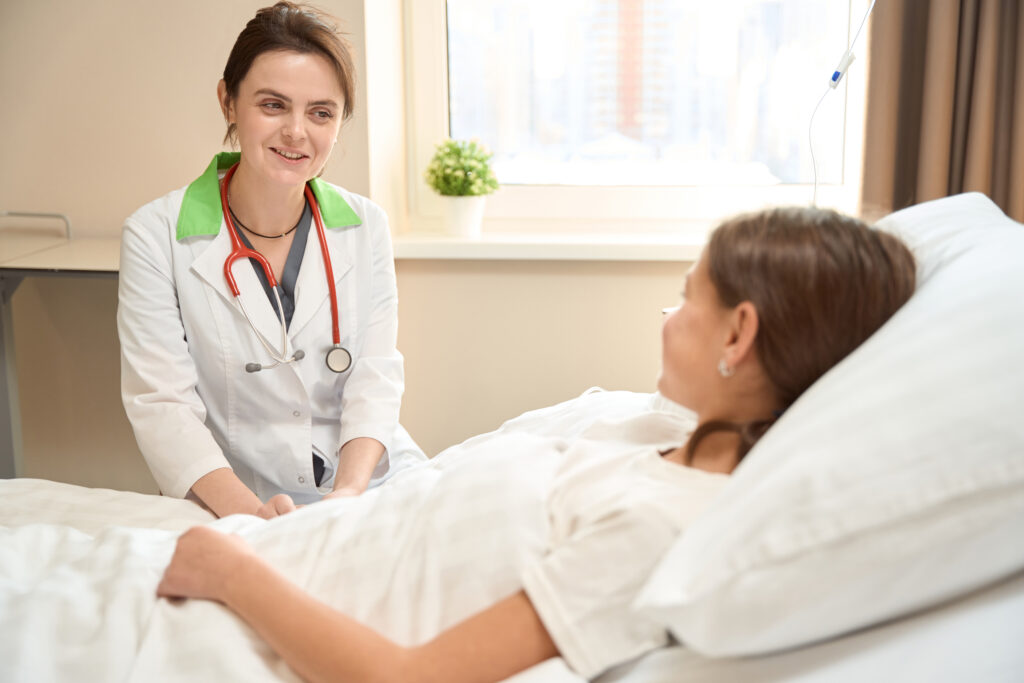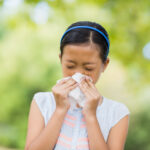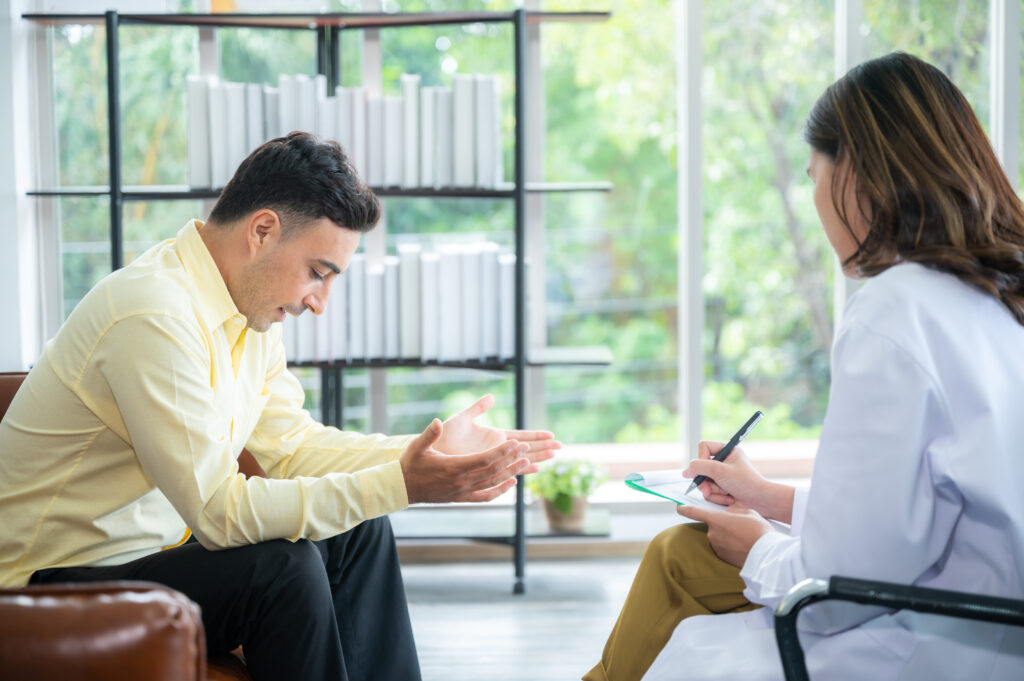
Chlamydia is a common sexually transmitted disease (STD) caused by the bacterium Chlamydia trachomatis. Chlamydia spreads by having oral, vaginal, or anal sex with someone who has chlamydia. The disease affects every gender equally, and everybody can spread it. It is commonly diagnosed in individuals 15-49 years of age. While the disease is dangerous and can risk your health and future potential to have children, it can often have no symptoms. In 2021, more than 1.6 million Americans were diagnosed with chlamydia. But the real number is likely a lot higher, because many asymptomatic carriers may not get tested.
Symptoms of chlamydia
About 75% of women and 50% of men who have chlamydia show no symptoms at all. If you are sexually active, you can get chlamydia.
In females, chlamydia symptoms include unusual vaginal discharge, a burning sensation when urinating, bleeding in between menstrual periods, and pain or a feeling of discomfort in the lower abdomen.
In males, chlamydia symptoms include a burning sensation when urinating, unusual discharge from the penis, and pain or a feeling of discomfort in the testicles.
In the anus, chlamydia can cause pain, bleeding, or discharge.
Around the mouth, chlamydia can cause sores, white spots, redness, or pain in the mouth, throat, or both.

Why teenagers and young people are especially susceptible to chlamydia
According to the CDC, several factors contribute to making young people more prone to getting STDs in general. Biologically, the bodies of young females are more susceptible to infections from sexually transmitted pathogens. Young people generally feel more hesitation to consult with doctors, especially about sexual topics. They also often lack access to quality healthcare because of not having health insurance. Young people can also be more likely to have more than one sex partner.
How can I know if I have chlamydia
Because you may not be showing any symptoms, the only way to know if you have chlamydia is by getting tested. Molecular tests to detect the bacterium Chlamydia trachomatis are the gold standard for chlamydia testing.
At-home self-test kits are available, which could allow you to collect samples at home (urine or vaginal swab) and send them to a laboratory for testing. However these kits can be expensive, and if you don’t collect the samples properly, you could get a false result.
Most test results will take at least a day to be ready. There are rapid tests that could give you results in 90 minutes, but they may be less reliable. According to the WHO, rapid diagnostic kits “perform poorly compared to molecular tests”.
The best way to be tested is under a medical provider’s supervision.
You can get tested at the following locations:
- Look for an STD clinic through your local health department. This information is easy to search online. You can recognize the websites from your state or local health department as the name of the website will have a .gov extension. These are trustworthy sites from official U.S. government organizations. For example, this website gives information on where to get tested for sexually transmitted infections such as chlamydia in Austin, Texas. https://www.austintexas.gov/department/sexual-health-clinic
- An urgent care location can be a good place, especially if you feel your symptoms flaring.
- Some locations are linked by the CDC on its website for HIV, STD, or Hepatitis testing. Some of these locations provide quality testing for free or at a very low cost, and keep your information confidential. You can give them a call and see if they provide testing and treatment for chlamydia.
To find a testing location near you, you can enter your zip code or city/state on the website https://gettested.cdc.gov/.

What if the test is positive?
If you test positive, it is time to get treated. Chlamydia is a readily treatable disease. Your healthcare provider will prescribe specific antibiotics that will kill the bacteria and free you from infection.
Taking the antibiotics will not ensure that you won’t get the infection again. If your partner(s) still have chlamydia, they will give it back to you. So, every sexual partner needs to get tested and treated, urgently so if one has already tested positive.
The medical provider will guide you on how long you must abstain from sex (any sex- vaginal, anal, and oral) while you are on medication.
Note: Always take antibiotics directly prescribed to you by a healthcare provider and purchased from a pharmacy. Never buy prescription medication of any kind on the internet or acquire it socially. According to the US DEA 6 out of every 10 fake prescription pills potentially contain a lethal dose of fentanyl. A single pill can cause overdose and death.
Would chlamydia get better on its own?
No, chlamydia will not go away without the right antibiotics. Left untreated, it can get worse. You will also be spreading it to your sexual partner(s).
Chlamydia complications
When left untreated, chlamydia can cause many health complications.
Males can develop a painful infection in the testicles, and in rare cases develop infertility.
Females can develop more serious complications that cause pelvic pain, abdominal pain, infertility, and life-threatening ectopic pregnancies.
Pregnant people who have chlamydia can pass it to their fetus causing complications such as preterm birth and low birth weight. A newborn who got infected during birth could have an eye or lung infection.
An inflammation in the eyes or swelling of joints is sometimes reported.
Chlamydia can also cause a dangerous disease called lymphogranuloma venereum (LGV), which if not treated early can infect your whole body and result in joint pain, swollen lymph nodes, swelling ulcers around the mouth, and chronic oozing lesions around the anus or rectum.
How to prevent chlamydia
The only sure way to not get chlamydia is not to have sex. Having oral, vaginal, or anal sex with someone who has chlamydia can pass the disease to you. Proper and consistent use of condoms is the next best alternative.
Dos and Don’ts of chlamydia prevention
Dos
- Choose sex only when you want to. If you do not want to be sexually involved with anyone but feel peer pressure to do so, there are resources available to you to help you stand your ground. Whether or not you choose abstinence, use this website to access information valuable to young girls, boys, gender-diverse teens, and young people.
- Get tested. If you choose to be sexually involved, remember that your health in the present and the future is of the utmost importance. Get tested yourself, and ask your partner to get tested too. You can find great STD conversation starters here: https://health.gov/myhealthfinder/health-conditions/hiv-and-other-stds/std-testing-conversation-starters
- Prefer to work with your physician. Diagnosing diseases and the best possible treatment routes can be prescribed by a physician who knows your health history. Don’t feel shy about bringing up the topic of sexual health with your doctor.
- Make yearly testing a routine. Even if you have no symptoms, if you are sexually active you should get tested every year. Catching diseases as early as possible reduces their damage to your body.
- Get tested sooner if you feel any symptoms. Even if you recently got tested, if you feel any symptoms at all, get tested again.
Don’ts
- Don’t feel pressured to have sex. If you feel any reluctance whatsoever, don’t let anyone talk you into it.
- Don’t hesitate to ask your partner(s) about testing.
- Don’t decide to have sex under the influence of alcohol, marijuana, or drugs. Not only are you more likely to have sex with someone you wouldn’t ordinarily choose, but you may not be careful about using condoms correctly to protect yourself from chlamydia and other STDs.
The information provided in our blog posts is for informational purposes only and is not intended as a substitute for professional medical advice, diagnosis, or treatment. Always seek the advice of your physician or other qualified health provider with any questions you may have regarding a medical condition. Never disregard professional medical advice or delay in seeking it because of something you have read on this blog.






